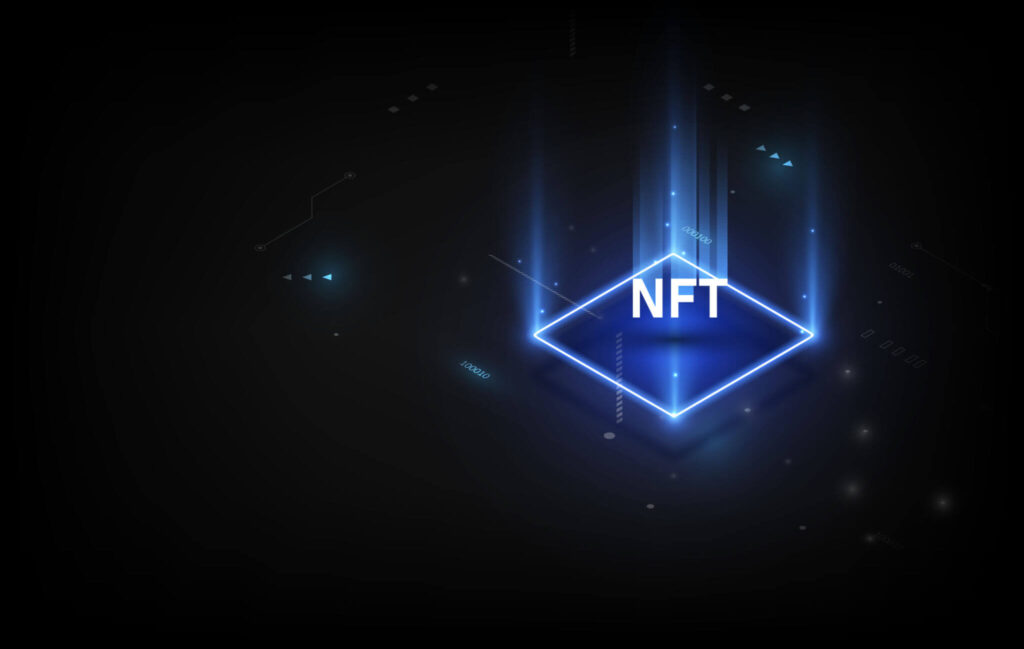With the sky as the limit, NFT is storming into digital space like never before. NFTs sell like hot cross buns for millions of dollars, from art and music to tacos and toilet paper. On the other hand, blockchains have digital identity issues that can hamper their integrity during a digital transaction. However, with NFTs and their authentication protocols, blockchain can survive such identity crises. This article will help you gain better insight into NFT authentication and how it helps solve authentication problems in the blockchain.
Let’s dive into some of the basics:
- What is an NFT?
- What is NFT authentication, and how to verify it?
- Why is there a need for NFT authentication?
- How can NFTs provide authenticity?
- Future of NFT Authentication
What is an NFT?
NFTs stand for non-fungible tokens, which means they cant be replaced or interchanged and have unique properties, i.e., no two NFTs are entirely alike. NFTs create an ecosystem of scarcity among otherwise infinitely available digital assets, and they provide a certificate of authenticity to prove it. They represent real-world objects like art, music, in-game items, and videos recorded on blockchain so that you can sell these items to others. They are highly sought-after digital assets. Each NFT has a unique digital signature, making it difficult to exchange for or equal to another, making it non-fungible.
However, due to the influx of fraudulent NFTs in the market, there is an urgent need for NFT-based authentication.
Read more: What are Non-fungible tokens or NFTs?
What is NFT authentication, and how to verify it?
NFT authentication is a method through which the NFT’s validity, transaction history, and connection to the underlying asset are confirmed and validated. NFTs are now at par with every other valuable item sold today; therefore, it is essential to check their authenticity before selling them for millions inside the crypto market. There is a thin line between creation and plagiarism in this digital world, which is a concern even in the NFT space. One of the easiest ways to examine the authenticity of an NFT would be to scrutinize its metadata with the utilization of a blockchain explorer.

First, you must find the asset on the blockchain and request the wallet address to determine its ownership. Below are the steps followed for the process.
- Visit NFT’s metadata on the blockchain explorer.
- The location of the NFT’s hash should be located to know where the NFT is stored on the location.
- Now enter the hash of the NFT in the explorer, after which you can view the NFT metadata.
- This data will help you analyze whether the NFT is authentic or not.
Every NFT available is encrypted with a unique hash which makes it impossible to duplicate, and all the NFT transactions are collected and stored in a blockchain. These transactional data of the NFTs can be viewed and verified by the public and the owners anytime they want.
Blockchain provides massive utility in commodities, assets, and currency ownership areas. However, digital identity and authentication are major issues faced by the blockchain. With the nuanced use of NFT-based authentication technology, blockchain regains itself in such areas and provides users with a verified and trustworthy identity. Blockchain and NFT-based authentication technology can write off many of its identity limitations.
If you plan to build a scalable solution to overcome authentication problems in blockchain, consult with a reliable blockchain development company to do a feasibility analysis.
Related Article : Blockchain as a Service (BaaS): How to choose the right provider?
Why is there a need for NFT authentication?
NFT technology is becoming a common part of the world now, and they are actively changing how we are transferring the ownership of the assets. There is an urgent need for NFT-based authentication technology so that you can be sure of every token you buy or sell. Ensuring that the NFT is authenticated is crucial, and it is done by checking if the transaction is correct and successful. If you can authenticate it before the purchase and verify its content and its origin, you will be able to purchase the real NFT and not the knockoff version.

Concerning digital identity, there are certain problems that the blockchain fails to address; however, with the help of NFT-based authentication technology, people can address these issues. Some of the major problems faced by blockchain are given below.
- Immutability: Blockchain’s immutability allows it to overwrite and reverse all the transactions on the public blockchain, thus deploying the risk and potential threat for sensitive transactions on the public blockchain. NFTs, on the other hand, being unique and one of a kind, do not allow any overwriting and thus prevent the issue of immutability.
- Synthetic Identity: Blockchain is a ledger that holds records, and it does not do anything to verify its identity. Any user can create a synthetic identity and tamper with the documents entered into the blockchain ledger. NFTs are unique identities that cannot be tampered with by external factors. NFTs verify the source with its authentication technology and ensure its identity is unique.
- Identity Verification: Strengthening identity and identity proofing is the most difficult part of digital identity, and blockchain does nothing directly to solve the identity proofing problem. NFT-based authentication helps us see who else has owned the token before us and the current owner, which can help us contact the token owner directly rather than going to different marketplace platforms. NFTs can prove their identity by checking their contact origin, which means that every NFT has a smart contract with its metadata and token ID.
- Demographics: Blockchain has issues addressing the demographic challenges associated with issuing strong digital credentials at scale. Due to the high gas fees, some blocks are transferred to other platforms with lesser gas fees; however, NFTs do not change based on their platforms or demographic changes.
- Standardization: NFT would serve as the perfect replacement for paper-based certificates of authenticity, as in blockchain, there is a lot of risk and uncertainty involved in the identity ecosystem.
How can NFTs provide authenticity?
NFTs prove their authenticity to blockchain identity drawbacks by checking their contact origin. Every NFT has a smart contract with its metadata and token ID, making every NFT unique and free from identity issues. Moreover, this helps us verify whether the creator of the NFT is genuine or not. This feature of NFTs will help support the blockchain on which the buyers conduct their crypto transactions and create more trust.
Once you plan to buy an NFT, and if it is an art, you should look for the artist behind it and their social media handles, or if it is any other NFT token, you should check for its initial creator. Still, all these processes can be time-consuming and may not guarantee that the NFT is genuine for the buyers.
Therefore, an easy method to confirm an NFT’s authenticity would be to use a protocol that can include authentication in its DNA. One of the protocols through which NFTs secure digital assets is through the use of validation and smart encryption. The system is designed so that anyone on the internet can trade and acquire assets smoothly on a blockchain.
In private and public blockchains, validation and smart encryption of NFTs are used to enhance data security and digital identification. Regardless of the blockchain on which the NFT is developed, such identification protocols will help trace its creator and confirm its authenticity and official status. Hence, providing lasting value for the NFT assets and its blockchain can be the best solution for an industry currently struggling with fraud and identity issues.
Read more: Top 10 Doubts And Questions On NFTs Answered
Future of NFT authentication
NFTs are here to stay, and so are the blockchains. However, with the help of NFT-based authentication technology and more awareness regarding fraudsters, buyers are now less likely to be scammed. The authentication value of NFTs will enhance the value of blockchain platforms in the future. NFTs and their authentication process will bring essential verification and trust benefits, thus giving the creator and their assets real value.


